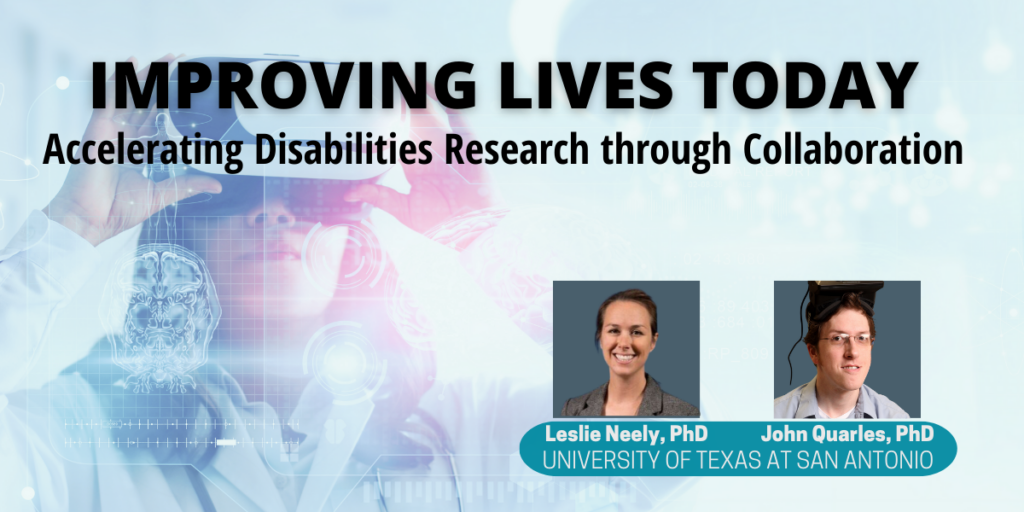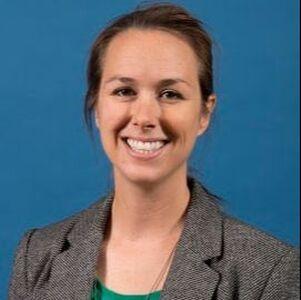
Improving Lives Today: Accelerating Disabilities Research through Collaboration
Monday, 24 April, 2023 2:00 pmZoom
Join us for a fascinating and encouraging discussion with University of Texas San Antonio researchers, Dr. Leslie Neely and Dr. John Quarles who are leading transdisciplinary research to improve the lives and health outcomes of persons with disabilities by utilizing virtual and augmented reality, artificial intelligence, and other advanced technologies.

Leslie Neely, PhD
Dr. Leslie Neely is an Associate Professor in the Department of Educational Psychology at the University of Texas at San Antonio. She is the Coordinator for the Department's Behavior Analysis Program and Director of the Child and Adolescent Policy and Research Institute (CAPRI). Dr. Neely is also a Doctoral-level Board Certified Behavior Analyst (BCBA-D) and serves as the UTSA Director of the San Antonio Applied Behavior Analysis Research Consortium. She earned a Bachelor's degree in Civil Engineering from UT-Austin, a Master’s degree in Educational Psychology, and Ph.D. in Educational Psychology (emphasis in Special Education and Applied Behavior Analysis) from Texas A&M University. Dr. Neely’s research originated in the application of ABA to the treatment of problem behaviors (e.g., self-injury). She currently has two-research lines: 1) telehealth to reach underserved populations, and 2) transdisciplinary research to improve health outcomes for individuals with developmental disabilities.
Recently, Dr. Neely has partnered with colleagues in computer science, engineering, cyber security, education, health, and kinesiology, to establish an innovative lab focused on integrating advanced technologies, including artificial intelligence, augmented reality and virtual reality, into the therapy and education of persons with disabilities. The goals of their collaborative work is to: (1) investigate precision therapy by leveraging artificial intelligence for motion analysis and identification of biomarkers predicting responsiveness to treatment, (2) develop augmented and virtual reality (AR/VR) trainings to provide supports to caregivers, educators and clinicians treating children with autism and developmental disabilities, and (3) investigate the use of AR/VR for direct therapeutics and education of children with autism and developmental disabilities. Once developed, these technologies can be integrated into daily life including via telehealth platforms to extend the reach of effective therapies.
